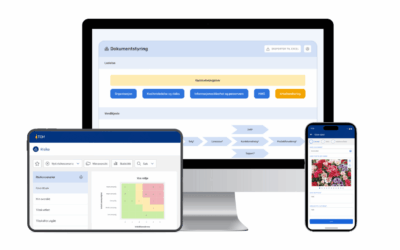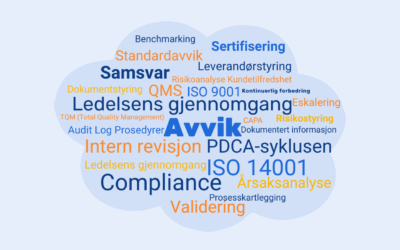Effective incident reporting in the waste management industry with TQM

How to improve quality, safety and sustainability
Let's explore some of the challenges of incident reporting in the waste management industry:
Challenge 1: Quality control in waste management
One of the most pressing challenges in the waste management industry is ensuring that waste management meets strict quality standards. Whether it is household waste collection or hazardous waste, quality is crucial. Any quality deviation can lead to environmental problems, legal violations and damage to the reputation of the waste management company.
Challenge 2: Safety incidents and accidents
Challenge 3: Customer complaints and discrepancies
Customers may report discrepancies related to service quality, such as delayed waste collection, billing errors, or improper waste handling. These complaints can affect customer satisfaction and the reputation of the waste management company.
Challenge 4: Compliance with regulations and environmental concerns
The recycling industry is subject to strict regulations related to environmental protection and safety. Complying with these regulations is not only important to avoid fines and legal consequences, but also to protect the environment.
Challenge 5: Documentation and reporting
Challenge 6: Education and awareness
Challenge 7: Continuous improvement
Incident reporting through Total Quality Management ( TQM ) has proven to be an effective tool for addressing the challenges in the waste management industry and promoting sustainable practices. By establishing clear procedures, fostering a culture of continuous improvement, and using data to identify trends, companies can ensure that:
- Waste treatment maintains high quality
- Workplace safety is maintained
- Environmental impact is reduced
- Regulations are complied with
- Customer satisfaction is maintained
TQM enables waste management companies to deliver services that meet both customer needs and society's expectations.
Want to know more?
Download our guide and gain insight into how TQM can help you handle incident reporting in the waste management industry.
Related posts
How to succeed with incident management
Health, safety and environment (HSE) is a central part of any business – regardless of industry. One of the most important components of...
This is new in 4human TQM
This is new in 4human TQM 2025 We are pleased to present a number of exciting news and improvements in 4human TQM ! This...
QMS glossary
Here are terms and abbreviations you should know if you work with quality systems (QMS) – whether you are new to the role or...


